Graham Reid | | 5 min read
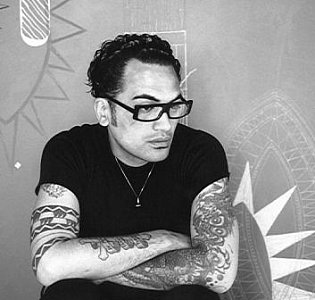
I wish I wasn’t writing this. I wish it wasn’t humid and raining. I wish I could bring myself to put his album on right now.
But – and I really don’t know why – I am overwhelmed by grief to learn that Pauly Fuemana has died.
Many, many others knew him – or will now claim to know him – better than I. In truth I did not know him at all – other than in a professional capacity.
But I can recall seeing his clip of How Bizarre when I was sitting slightly lost and lonely in a hotel in Amsterdam and in another in Tokyo; hearing that lazy summer song come out of car radios in Brixton and downtown LA; and again in a remote part of Italy where the people always struck me as too cool for even the Milan fashion set.
Pauly and his ineffably cool song were there, gone global.
How strange.
This I am writing unfiltered because that is how I feel: I am so sad for his family of course, and cannot imagine what people such Simon Grigg and Victor Stent and Alan Jansson must be feeling right now.
(Those who, like me, know the dark backstory behind Pauly’s briefly successful career will guess they must each be feeling very different things, but possibly a similar sadness.)
I will just say my bit: I remember a lovely day sitting in Auckland’s Virtu restaurant in late ‘96 when Pauly was relaxed and had come back from the madness of having a hit single in Europe.
He’d had to fly back and forth to Britain to be on Top of the Pops (it meant the quick purchase of a Eurail pass and a re-entry permit) and he’d started rehearsals there at 7.45am and left the studio at 8pm.
When I spoke to him he could laugh about it all: he’d met (and you have to remember this actually meant something back then) Bryan Adams, Neneh Cherry and … Peter Andre. (“He works really hard for what he’s got” said Pauly charitably. Andre was dick even then.)
Pauly’s new manager was Grant Thomas (who handled Neil Finn, Crowded House and Dave Dobbyn at the time), and he laughed about having played the Big Day Out – and University gig for $35.
Highs and lows.
All good.
He joked about being interviewed about his newly found high profile: of being interviewed by Dylan Taite for television (“we wanted to get in the lift”), and John Russell (then editing Rip It Up) – and me, at the Herald.
“You snubbed me at the music awards, “ he laughed – and on that night I maybe did, the same at the Silver Scroll where he picked up a couple of awards.
No one in their right mind would snub him of course, but I saw the man was far too busy for chit-chat with the likes of me. By way of example he was in South East Asia within days of our long lunch and by the time my interview was in print he was in Thailand.
“I was in Germany for four days and did 16 interviews every day, plus four video shows,” he told me. “Switzerland and Sweden were like that.”
And that was his life at that time when the spotlight shone the brightest – and possibly was the most blinding.
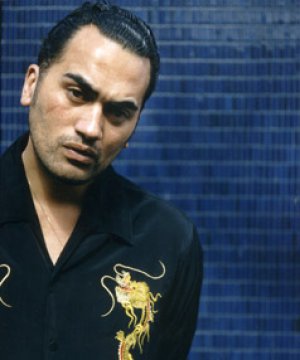 I’d like to think that sitting with
me he was as relaxed as he seemed: we’d met a few times on a
sociable basis, once memorably before How Bizarre was happening . .
. but it was obvious to me it was a Kiwi hit – and then said as
much in print.
I’d like to think that sitting with
me he was as relaxed as he seemed: we’d met a few times on a
sociable basis, once memorably before How Bizarre was happening . .
. but it was obvious to me it was a Kiwi hit – and then said as
much in print.
The international rest of it I would never have guessed.
Pauly was relaxed despite it all – but he did also note that some people here had given him the fingers, he’d had accusations of “sell-out” on his phone and his ’79 Mercedes coupe had been vandalised.
He told me that at a family function things had changed too: his extended Niuean community which once marginalised him (my words) now wanted autographs. I remember telling him that Ringo Starr knew he’d become famous and things were changed irrevocably when he went an aunty’s house in late ’63 and she insisted on bringing out the good china.
We laughed over that. But he knew it already.
And the rest.
His song Breaking My Heart said: “When you’re in they all come around, and when you’re out they don’t wanna know”. And we talked about that too, and he named names.
And so my afternoon went with Pauly who was sensitive, happy, smart but slightly sad, looked good in a great suit (“Oxford Street? No, Salvation Army, mate”) and so on.
He had a bit to hide about his past, but we both knew that and passed over it.
And why not?
I remember he spoke a lot about “learning the business”.
But in a way it was too late: the business had taken over him.
In the coming months I guess all of that will come out – as it should. But right now I don’t care.
I am just sad.
A few years ago – and my wife tells me I have no concept of time so it might have been more than a few – Pauly’s wife rang out of the blue and said he wanted to talk. “Needed to talk” were the words, if I recall.
He had something going on and after what I had written over the years he trusted me.
I rang back, left the message, calls were passed and connections never made. I knew part of what was happening in his life at that time.
But that's enough of that.
This I know beyond question.
There isn’t a hip-hop, or pop, artists in this country – unwittingly or otherwise – who doesn’t owe a debt of gratitude to Pauly Fuemana. He (and his late brother Phil) proved the impossible was within our grasp.
Some cynics will say Pauly only left one great song. But that is one more more than they and I – and most of us – will ever leave.
This is a sad day.
On the back of those pages of my long interview published in the Herald – which I kept for reasons I cannot explain – I note there are interviews with AC/DC (who were playing Ericsson Stadium a few days later) and with Mel Gibson (who had a new movie Ransom opening).
For them, life and their careers continued.
For Pauly the public part was over long ago. And now, public and private, forever.
I’m going to go upstairs and open a bottle of wine and look at this rainy afternoon. I will not put on his one great hit or his somewhat indifferent album, because if I did I know I would probably weep uncontrollably.
And the strange thing is, I won’t know why.
His death, to me, just seems too big and small, too sad and too unnecessary.
And – because of what I know about the music world which eats its young – not that bizarre at all . . .


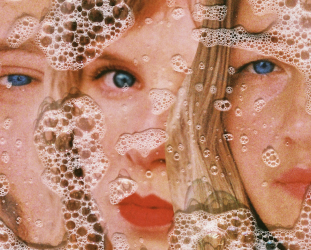
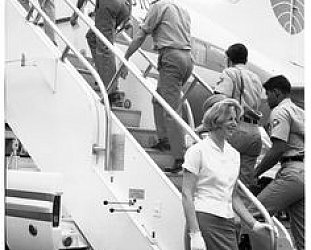
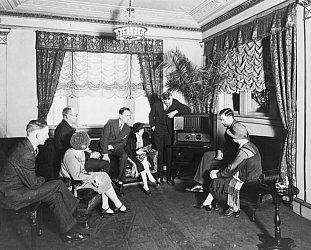

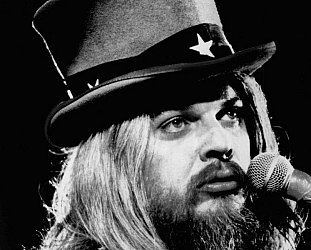
post a comment